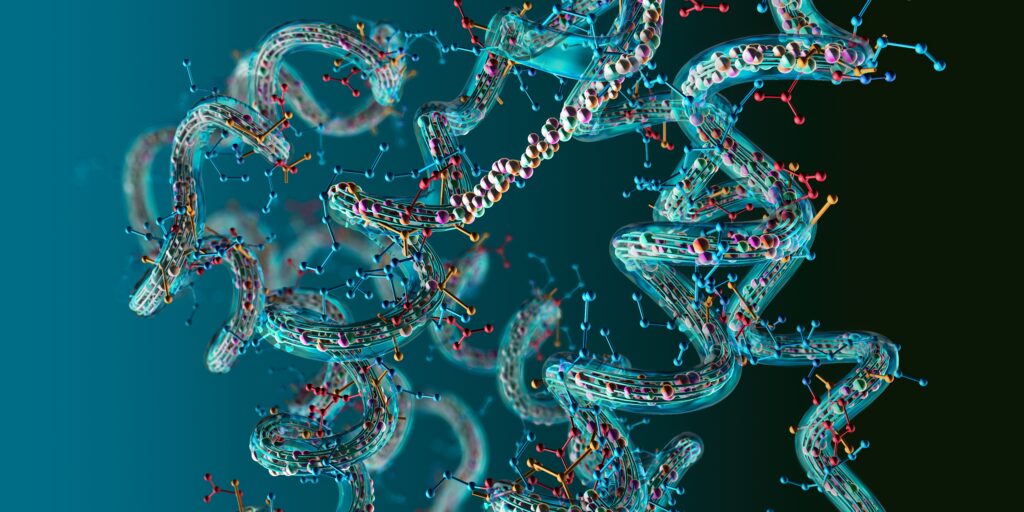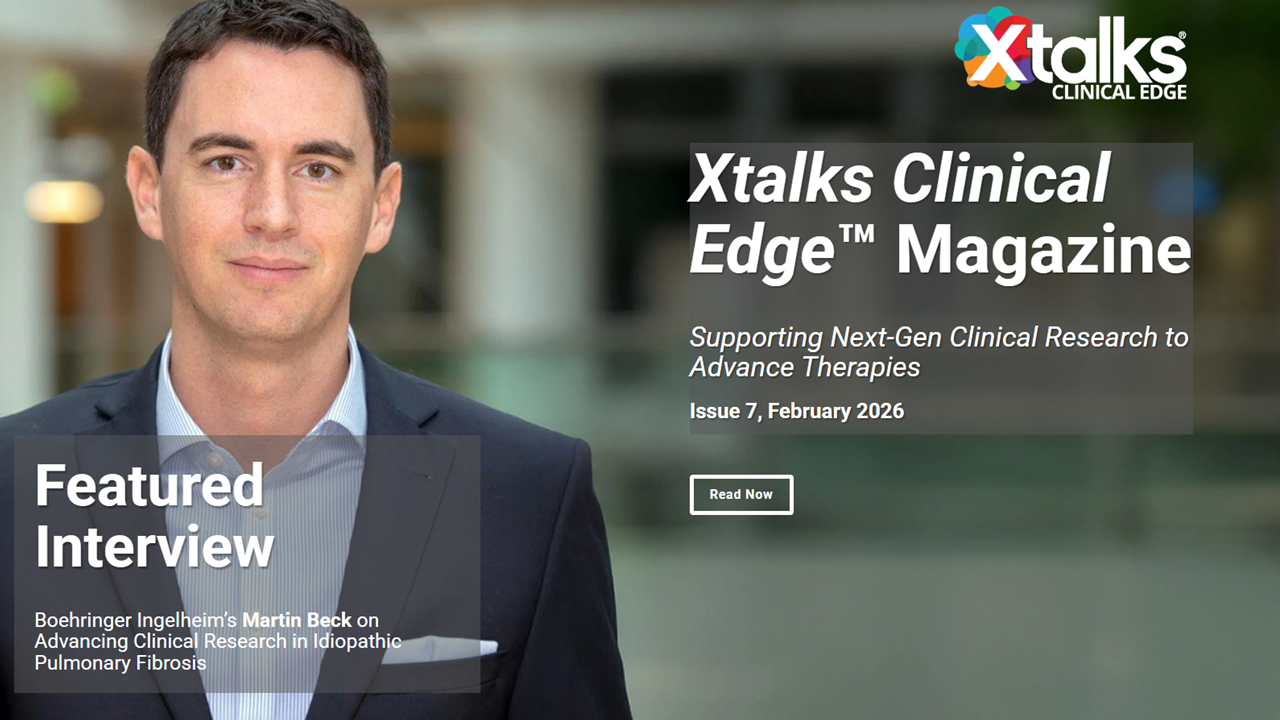Many current therapies for autoimmune and allergic diseases are often accompanied by significant adverse effects or immune suppression. Therefore, there is a need for treatments that are effective and safe with minimal side effects.
Xtalks spoke with Jones W (Woody) Bryan, PhD, President and CEO of Revolo Biotherapeutics to gain insights into the company’s innovative approach to treating autoimmune and allergic diseases. The company is developing unique therapeutic assets with strategic visions.
As reflected in its name “Revolo,” Revolo Biotherapeutics is grounded in a mission to revolutionize the treatment of autoimmune and allergic diseases. With headquarters in Gaithersburg, MD, US and London, UK, Revolo Biotherapeutics is focused on developing therapies that reset the immune system to achieve superior efficacy and long-term disease remission without compromising the immune system.
Dr. Bryan explains that with the advent of more allergens, food allergens and new materials that are used in preserving food or introduced into the atmosphere every day, new allergic responses may be triggered that might previously have not been well characterized.
As a result, the prevalence and need for treatments for people with autoimmune and allergic responses continue to go up. Revolo’s ongoing research and development are aligned with these needs, aiming to fill gaps left by existing therapies, which often have efficacy rates around 30 to 40 percent.
Current therapies have a number of limitations and safety concerns. For example, steroids have concerns associated with long-term chronic exposure while other immunosuppressants and biologics can lead to respiratory infection. Striking a favorable balance between therapeutic benefits and serious side effects due to suppression of the immune system is a challenge with current therapies.
“There’s a tremendous opportunity for new therapies that are safe, effective and do not compromise the immune system. The number of people in the population who need these across the vast categories of disease is tremendous. No matter where you look, there’s a real need for new innovative therapies that improve the lives and quality of life for patients in their journey,” says Dr. Bryan.
Dr. Bryan explains how his decision to join Revolo Biotherapeutics was driven by the potential to address unmet needs in allergic disease, inflammatory disease and autoimmune disorders. Dr. Bryan says he was particularly drawn to the early-stage data from Revolo Biotherapeutics’ ‘1104 and ‘1805 therapeutic assets, which showed promise in various therapeutic avenues.
Dr. Bryan began his career at Schering-Plough, engaging in formulation and drug delivery. Although a significant learning environment, the corporate size made personal impact feel diluted, prompting a move towards smaller, more dynamic settings. This transition led to roles in companies such as Shire, which spun out a division to start a new company called Supernus Pharmaceuticals, in which he engaged in corporate development, licensing and strategic management, taking companies public and navigating mergers and acquisitions. After building out a pipeline through transaction at Sucampo Pharmaceuticals and selling the company in 2018, Dr. Bryan found himself at what is today Revolo Biotherapeutics.
The company built out its pipeline from academic research groups in the UK, where the company still maintains one, while the rest of the company was built from a development organization in the US.
Dr. Bryan recounts how he was “employee number two” at Revolo when it set up base in the US, and explains why he gravitated towards the company. “What struck me about the company was that there was a lot of room for filling unmet needs across allergic disease treatment, inflammatory disease and autoimmune. I was struck by the data that Revelo had at the time.”
The data, preclinical data in many regards, helped highlight the unique characteristics of Revolo’s ‘1104 and ‘1805 assets, which could be explored in different potential therapeutic avenues.
A Unique Upstream, Disease Agnostic Approach
Revolo’s therapeutic approach is distinctively proactive rather than reactive. Unlike traditional therapies that act on the immune cascade after it has been initiated, Revolo’s treatments act at the very beginning of the immune response. This upstream intervention is designed to prevent the cascade of events that lead to inflammation and disease, doing so without the immunosuppressive effects typical of many current treatments.
This is in contrast to most current therapies that are designed to be reactive to inflammatory processes and cascades, shutting down pathways downstream to prevent cytokine releases that lead to inflammation and cause problematic disease. Dr. Bryan explains how Revolo’s approaches are “very much upstream to that. They work at the interface of when the antigen or allergen is introduced to the body.”
Another distinctive feature of ‘1104 and ‘1805 is that they are antigen agnostic, meaning they work independently of the specific allergen or antigen to reset the immune system, according to Revolo. This means the therapies, particularly ‘1104, are effective regardless of the specific trigger within the immune cascade, suggesting a broad applicability across various diseases and conditions triggered by different allergens and antigens.
In conditions like asthma or eosinophilic esophagitis (EoE), there are a number of different allergens that can trigger an immune response. ‘1104 has demonstrated the ability to have an impact on the disease state regardless of what that trigger is, explains Dr. Bryan.
The company’s drug product candidates ‘1104 and ‘1805 modify how monocytes and macrophages respond to antigens, potentially directing the immune system towards a more regulated, balanced response.
Specifically, the drug candidates are designed to ‘rest’ the immune system from a pro-inflammatory state to a regulated homeostatic state by inducing T regulatory (Treg) and B regulatory (Breg) cells, achieving the effect after just one dose. ‘1104 and ‘1805 bind to monocytes as they mature into dendritic cells, which triggers a modified “regulatory” signal to naïve T cells, generating Tregs instead of proinflammatory T effector cells.
“It’s a unique balance of upregulation of regulatory immune cells and damping down in a physiological homeostatic sort of balancing of the immune system to stave off inflammatory processes. Thus far we’ve seen in doing so, there is no evidence of immunosuppression.”
This speaks to the favorable safety side of the drugs, as they do not compromise the immune system to the point that they make a patient susceptible to other infections and side effects, which is a known downside to existing therapies in the marketplace, explains Dr. Bryan.
Since its early days, the ‘1104 program has gone through multiple clinical studies, validating many of the preclinical predictions and resulting in encouraging clinical data, particularly in EoE and allergen sensitivity studies, explains Dr. Bryan. Revolo has also been advancing its chemistry, manufacturing and control (CMC) components and is gearing up for larger Phase IIb trials in EoE and Phase II trials in other indications like atopic dermatitis and allergic asthma.
Towards a New Therapeutic Future for Autoimmune and Allergic Disease Treatment
Looking forward, the field of autoimmune and allergic disease treatment is poised for transformative changes. The gap between the increasing prevalence of these diseases and safe, efficacious treatments continues to create the need to innovate.
The US Food and Drug Administration (FDA) recently granted Revolo’s ‘1104 candidate orphan drug designation for EoE.
“Having the designation granted by the FDA is consistent with the fact that they believe there are still huge unmet needs in the EoE and other neighboring spaces,” says Dr. Bryan.
He feels the agency wants to encourage companies like Revolo, which have interesting new modalities they’re bringing to the table, to continue to pursue development, approval and commercialization of products in those spaces. “We’re very excited about this from the FDA,” says Dr. Bryan.
With a focus on upstream, proactive interventions, a disease-agnostic approach and a commitment to safety and efficacy, Revolo Biotherapeutics hopes to develop new therapies truly revolutionize the future of medical treatment for autoimmune and allergic diseases.
If you want your company to be featured on Xtalks.com, please email [email protected].












Join or login to leave a comment
JOIN LOGIN